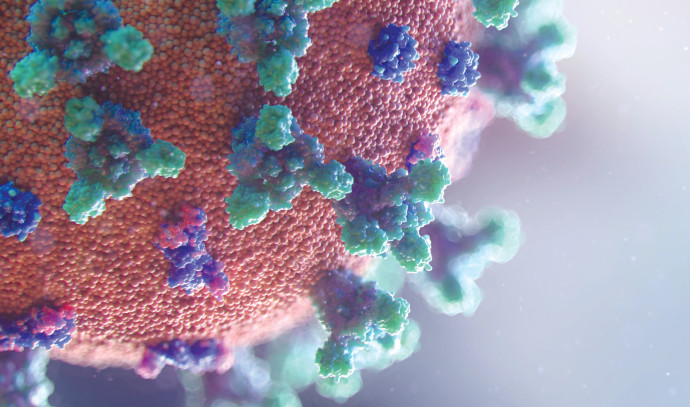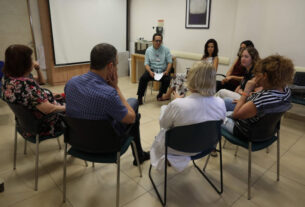Patients who suffered from severe cases of COVID-19 and required ventilation are 16 times more likely to develop a heart rhythm disorder known as ventricular tachycardia within six months, according to a new study by the European Heart Rhythm Association.
The study, presented at the EHRA 2023 scientific congress, additionally found an increased risk of other heart rhythm disorders (arrhythmias), such as atrial fibrillation, other tachyarrhythmias and bradycardia/pacemaker implantation, in patients who suffered from severe cases of COVID-19.
Ventricular tachycardia is a potentially life-threatening disorder that occurs when the ventricle beats too fast to properly pump and provides the body with insufficiently oxygenated blood. Atrial fibrillation is an irregular and fast heartbeat that causes shortness of breath and raises the risk of stroke, while “other tachyarrhythmias” refers to a fast heartbeat not caused by atrial fibrillation. Bradycardia or pacemaker implantation refers to a patient with a slow heart rate or a patient who required a pacemaker due to a slow heart rate.
“The actual likelihood of developing ventricular tachycardia or other arrhythmias after severe COVID-19 is low for the individual patient, but much higher than in those without severe infection,” said study author Dr. Marcus Stahlberg of the Karolinska Institute in Stockholm, Sweden.
The researchers analyzed the data of 3,023 patients with severe COVID-19 at Swedish ICUs and 28,463 individuals from the general population who had not been in an ICU with COVID-19. The average age of the participants was 62 years old and 30% were women.
“Higher age and male sex are two important risk factors for getting severely sick with COVID-19 and this was reflected in our study participants,” said Stahlberg.
Compared to the control group who were not hospitalized for severe COVID-19, patients who suffered from severe COVID-19 had a 16-fold risk of ventricular tachycardia, 13-fold risk of atrial fibrillation, 14-fold risk of other tachyarrhythmias and a 9-fold risk of bradycardia/pacemaker implantation.
Stahlberg advised that patients experiencing heart palpitations or irregular heartbeats after suffering from severe COVID-19 be evaluated for possible arrhythmias. The study author noted that past studies have shown that even COVID-19 patients who were not hospitalized in an ICU had an increased risk of arrhythmias.
Study latest to find links between COVID-19 and cardiovascular issues
Since nearly the beginning of the pandemic, medical professionals began noticing COVID-19’s effects on the heart and cardiovascular system.
In May 2020, a research paper from UVA Health found that the novel coronavirus can cause serious cardiovascular complications, including heart failure, heart attacks, blood clots and strokes.
A report published in Nature Medicine last year found that an average of one year after their recovery from the acute phase of the infection, the COVID-19 survivors had a 63% higher risk for heart attack, a 69% higher risk for problematic irregular heart rhythm, a 52% higher risk of stroke, a 72% higher risk of heart failure, and a nearly three times higher risk of a potentially fatal blood clot in the lungs compared with the other two groups.
The risks were high even in people who had mild COVID-19 and did not need to be hospitalized for it, noted Ziyad Al-Aly of the VA St. Louis Health Care System and Washington University in St. Louis in a Twitter thread. “It really spared no one,” Al-Aly told Reuters.




